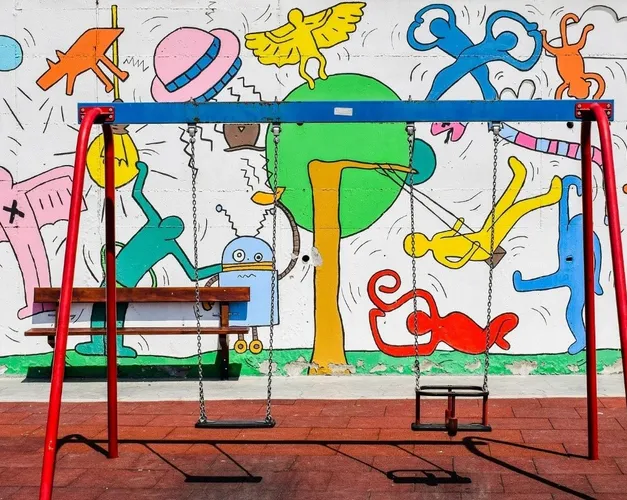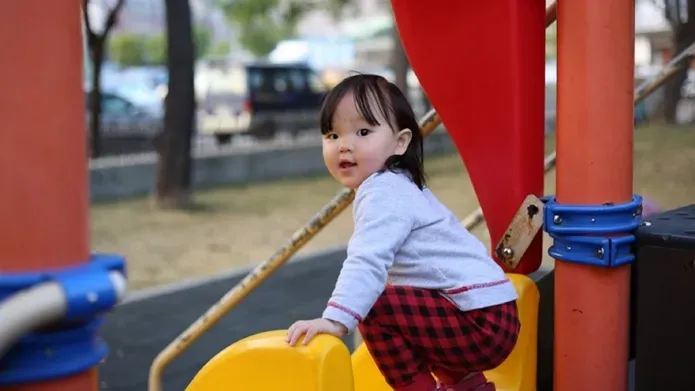Feature
Early language in play settings (eLIPS)
eLIPS is a method for observing the language development of young children during play. This research forms a partnership with early years educators to tackle the early language difficulties that are barriers to learning, social inclusion and well-being.
Published on 19 April 2020


This research began as a series of informal discussions with Fife Council Education about supporting the development of children from disadvantaged backgrounds. Language quickly emerged as a focus as it is especially vulnerable to the effects of social deprivation. By getting support and intervention right in the early years, practitioners can help to prevent poor communication skills from damaging later well-being and learning as children grow older. This goal aligns with the key priorities of the Scottish Government in delivering excellence and equity in Scottish Education, especially the emphasis on high quality Early Learning and Childcare.
The focus that we identified linked well with research being conducted by Dr Lynne Duncan, a developmental psychologist who studies language development in the School of Social Sciences. A partnership was established that offered placements for our MSc Developmental Psychology students to gain experience of child development in early years settings. The work on early language that was done at this time showed promise and Fife Council awarded funding in 2013 to Dr Lynne Duncan and Dr Douglas Potter, another experimental psychologist at Dundee. This led to the formation of an action research group, involving early years educators, educational psychologists, MSc Developmental Psychology students, academic researchers and those responsible for early years education. It also enabled the appointment of a post-doctoral researcher, Dr Conny Gollek.
Fife Council Education Service gave us the remit of producing a tool that would raise awareness of language development among early years educators to help support the language skills of children in their care. So, the new tool was to be used with children aged between 3 and 5 years of age from a range of social and cultural backgrounds. Importantly, it was to be suitable for evaluating early intervention, especially interventions aimed at reducing the impact of social disadvantage.
The use of an action research model was a novel aspect of our study which enabled a dialogue with the users of our research in the planning stage. Input from the action research group highlighted the child-centred nature of the early years playroom where children choose their own activities according to their own interests. This ruled out the use of more formal psychometric language assessments favoured by psychologists and speech and language therapists for clinical diagnosis of language difficulties. Early years educators did not perceive such methods as consistent with their daily practice since children would have to stop playing in order to complete a formal test. We also came to understand that observational techniques were central to the practice of early years educators in following children’s progress.
As a result, we opted for an observational approach to understanding language skills, Early Language in Play Settings (eLIPS). Early years educators would be able to use eLIPS to observe children while they were playing in activities of their own choice. By completing eLIPS, they would gather information about how the children were interacting, what they understood and how they expressed themselves to other children and adults during play. This spotlight on play is consistent with what we know from developmental psychology that preschool children often show their capabilities to best advantage when they are playing.
During 2014-2015, we conducted trials in ten early years settings in Fife working with educators and children to find the best format for eLIPS. Once we had a version for testing, we found that the outcomes using eLIPS were reliable and comparable with those from more formal assessments of language. This meant that eLIPS was able to identify children who may have a language delay and who could be in danger of suffering from later language difficulties.
In 2016, a small number of early years teams in Fife nurseries began to be trained in the use of eLIPS and trials reassured us that researchers and educators produced similar results using eLIPS. Later this training was expanded to include other services such as speech and language therapists as well as educational psychologists and the principal teachers, who would act as staff trainers as Fife began to widen the use of eLIPS in 2017. This meant that eLIPS was able to be rolled out across all Fife Council early years settings for the 2018-2019 school year.
Feedback to date suggests that early years educators find eLIPS useful for highlighting children who may need further support and also for thinking about the next steps for all of the children in the setting.
Dr Lynne Duncan
The dialogue between researchers and practitioners that was established in this project has led to wider discussion of early language through an initiative funded by the Scottish Universities Insight Institute as part of the Conversations about Language and Literacy programme.
The eLIPS project is ongoing and we are currently working with the Health Informatics Centre to produce a digital version of eLIPS which should streamline the administration and feedback process. It also has the potential to build databases for cohort-level reporting and further research.
Press Office, University of Dundee
[email protected]